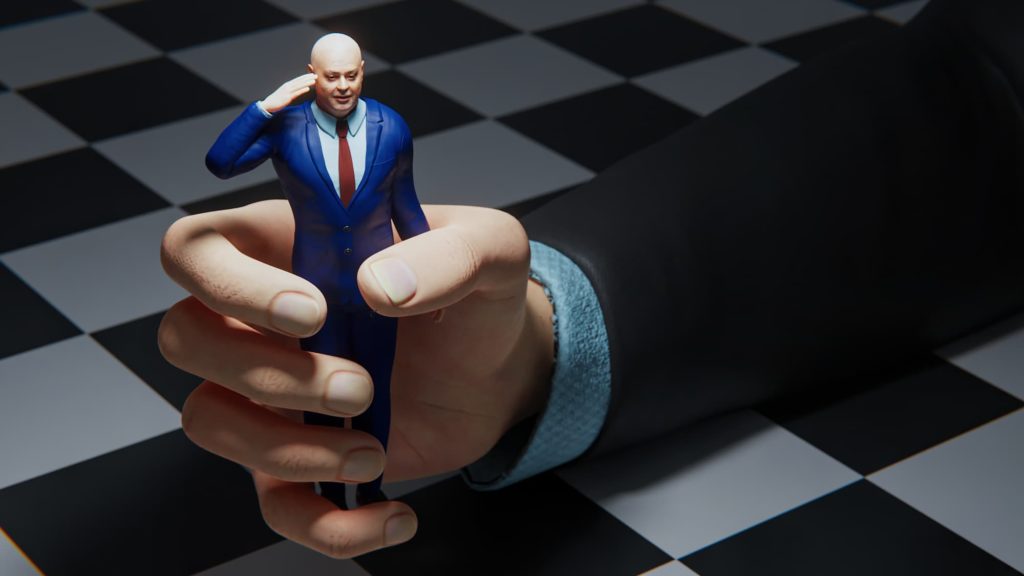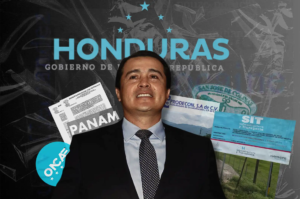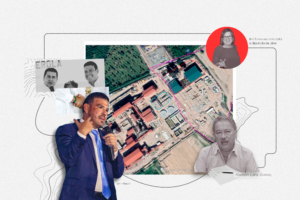Josías Aguilar, an attorney who had previously worked as a detective in two operations against the Valle Valle Cartel at the age of 21, exposed the connections between the drug trade and siblings Tony and Juan Orlando Hernandez. While working for the Attorney General’s Office, Aguilar brought to light the former president’s connections to drug trafficking and reported it to his supervisor, Soraya Cálix, as well as the outgoing Attorney General, Óscar Fernando Chinchilla. This story narrates everything that the Public Ministry failed to do over a decade against the Honduran narco-state.
Text: Leonardo Aguilar
Photography: Jorge Cabrera
Translated by: Amy Patricia Morales
The area where attorney Josías Aguilar works is spacious, divided into two sections, one for the complainants and another, separated by a horizontal barrier of small desks, for the prosecutors, their assistants and storage files. What is talked about here echoes around the room with its high ceiling, cathedral style, spacious, which it must be, because the columns of files are enormous.
Josías, 29, sits in a tiny cubicle that serves as the complaint reception in the dilapidated annex of the Public Ministry in Tegucigalpa, in front of a handful of chairs set up for complainants. Josías does not appear to be who he is: the employee who dared to denounce Attorney General Óscar Fernando Chinchilla and Soraya Cálix, his former boss in the Office for the Fight against Drug Trafficking (Dirección de Lucha Contra el Narcotráfico – DLCN), for protecting a network of drug traffickers that colluded with the highest echelons of Honduran politics.
To put it simply, Josías explained that, at the time, he alerted his superiors of the links to drug trafficking, first of former Nationalist congressman Juan Antonio Hernández and also of his brother, former President Juan Orlando Hernández, both currently imprisoned in the U.S. for drug trafficking.
“Why haven’t they sent me to be executed, or into exile or something like that?” Josías asks in a low voice, leaning his body forward, squinting his eyes behind his glasses.
He responds to himself as someone who is aware that he is in some way protected. “I don’t know if you remember last year when they tried to impeach the Attorney General. What they tried to impeach him with was my report, because it was leaked, because I presented it in several places: the Human Rights Secretariat, Conadeh, the American Embassy, in a lot of places, to protect myself, denouncing the Attorney General and attorney Soraya Cálix, with evidence”.
Last May 12, 2022, a special commission of deputies presented a report to the plenary of the National Congress recommending an impeachment trial against Chinchilla. The legislative session, which was recorded, also recommended that Rolando Argueta Pérez, former president of the Supreme Court of Justice (CSJ), be impeached for failing to sanction judges or magistrates who favored drug traffickers while presiding over criminal cases.
It was reported during that session, that the president of the National Congress, Luis Redondo, instructed the Secretariat of this State entity to proceed to translate that report into English and send a copy to the Secretariat of State in the Office of Security, to the Specialized Fiscal Unit Against Corruption Networks (Uferco), to all the Embassies accredited in the country, to the International Organisms of Investigation of Drug Trafficking and to the entire International Community. “So that the whole world knows this National Congress is bringing order to this country”, said at the time one of the Secretaries of the National Congress, Congresswoman Angelica Smith.
Congresswoman Silvia Ayala, member of the Special Commission on Extradition that presented the impeachment recommendation, confirmed what Josías said, explaining that they received official information in which detectives from the Anti-Narcotics Directorate pointed out “a great amount of irregularities committed, at that time, by the head of the Anti-Narcotics Directorate [Soraya Cálix]; and where they denounced illegal orders, manipulation of files and a series of situations that the detectives brought to the attention of the Attorney General of the Republic and he failed to act. That is among the acts that I claim, by omission, the Attorney General of the Republic bears responsibility for.”
According to the deputies, the evidence against Chinchilla is kept in the “safe of the National Congress”. “The prosecutor is a person who helped ensure that a large number of actions that could have constituted crimes were not brought to justice”,”Ayala said.
The report, which was supposed to be made public in May of last year, has not yet been published. Four deputies consulted by Contracorriente affirmed that they did not have the document in digital or physical form. On the eve of Chinchilla’s departure from the Public Prosecutor’s Office, some congressional members made inquiries to the Legislative secretariat and the management department. The report was not provided.
The deputies further note that the director Soraya Cálix should also be investigated given the amount of allegations against her: orders she gave to detectives, subordinates, files that, according to witnesses, were manipulated by Cálix, and from which pages were even extracted.
“It was the obligation of the Public Prosecutor’s Office to investigate these situations, because they were not minor allegations, and they were not low level officials, though regardless of the level and position, the nature of the facts that were being denounced required a thorough and timely investigation by the Public Prosecutor’s Office, an investigation that was not carried out”, said Ayala, who added that on the contrary, “some detectives faced repercussions for their denunciations”.
Among the detectives is Josías, who claims to have switched cars at least five times, and left the house where he lived with his parents abandoned. “They cut the brakes on my vehicle, about three months ago. In the house where I used to live they came to fire shots at me”.
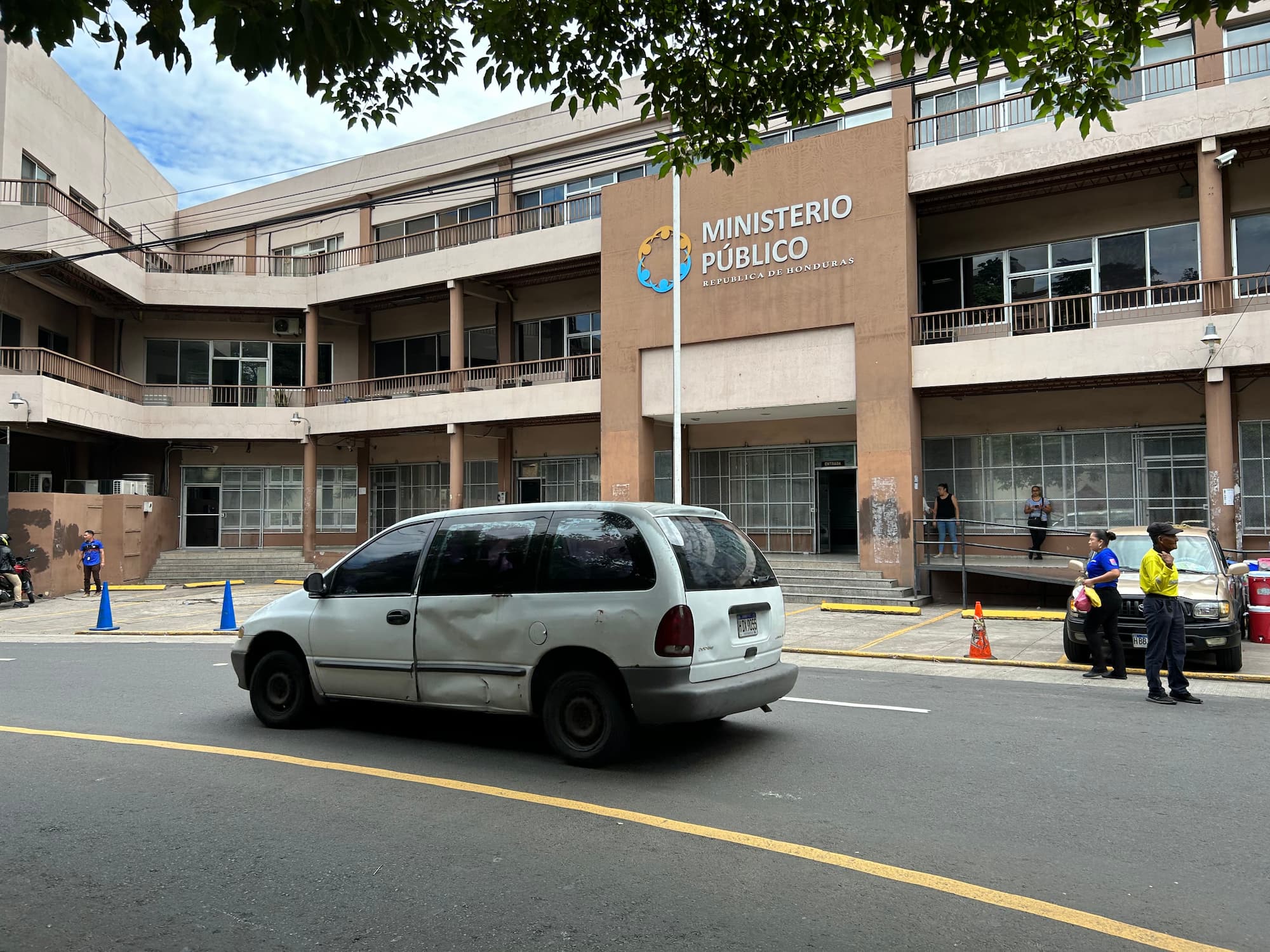
Josías rose to prominence a few months ago after participating in a 79-day long protest by Public Prosecutor’s Office employees. This protest was joined by employees of Forensic Medicine, a branch of the Public Prosecutor’s Office – halting, for a time, cadaveric examinations, which left bodies to be abandoned in rivers and on highways.
Currently, Josías hopes that the election of a new prosecutor will bring about changes for them, such as a purge of the Public Prosecutor’s Office, adherence to protection mechanisms for attorneys and prosecutors, and the hiring of additional staff due to an overwhelming workload.
-Do you know how much is the fiscal arrears? -Josías asked.
-How much? -I asked
-Over 100 thousand files
-Over what period of time?
-Let’s say about 10 years.
Josías explained that this prosecutorial backlog is due to the fact that the Public Prosecutor’s Office has few prosecutors, 841 at the national level, according to the July staffing table. He added that this contrasts with members of other agencies such as the Armed Forces and the National Police, which have between 15,000 and 20,000 personnel in their ranks, including intelligence agents who constantly refer cases to the Public Prosecutor’s Office. “How many does the Public Prosecutor’s Office have? We are only 3,766 employees at the national level (3,558 with tenure agreement). Can you imagine 5,000 Police agents referring cases and 5,000 intelligence agents of the Armed Forces referring cases?”.
The salaries of Honduran prosecutors differ significantly from one another. For example, the Attorney General of Honduras received 235,000 lempiras, or roughly 9,500 dollars, in total income in July. While some prosecutors and coordinators in their offices received more than 100,000 lempiras, or roughly 4,000 dollars. Prosecutors and their deputies make between 25,000 and 50,000 lempiras per month. In rare situations, there are assistant prosecutors earning 21,000 lempiras. Then there are those who receive even lower salaries, such as drivers and complaint handlers.
As expressed by Josías, there is a significant workload because some prosecutors are handling up to 700 cases at a time. “In what lifetime and with what time do you plan to address such a burden?”. Josías stated that the salary range for prosecutors in other Central American countries like Panama, Costa Rica, El Salvador and Guatemala, is between US$1,400 and US$2,300.
Óscar Chinchilla, the man of “absolute anonymity”.
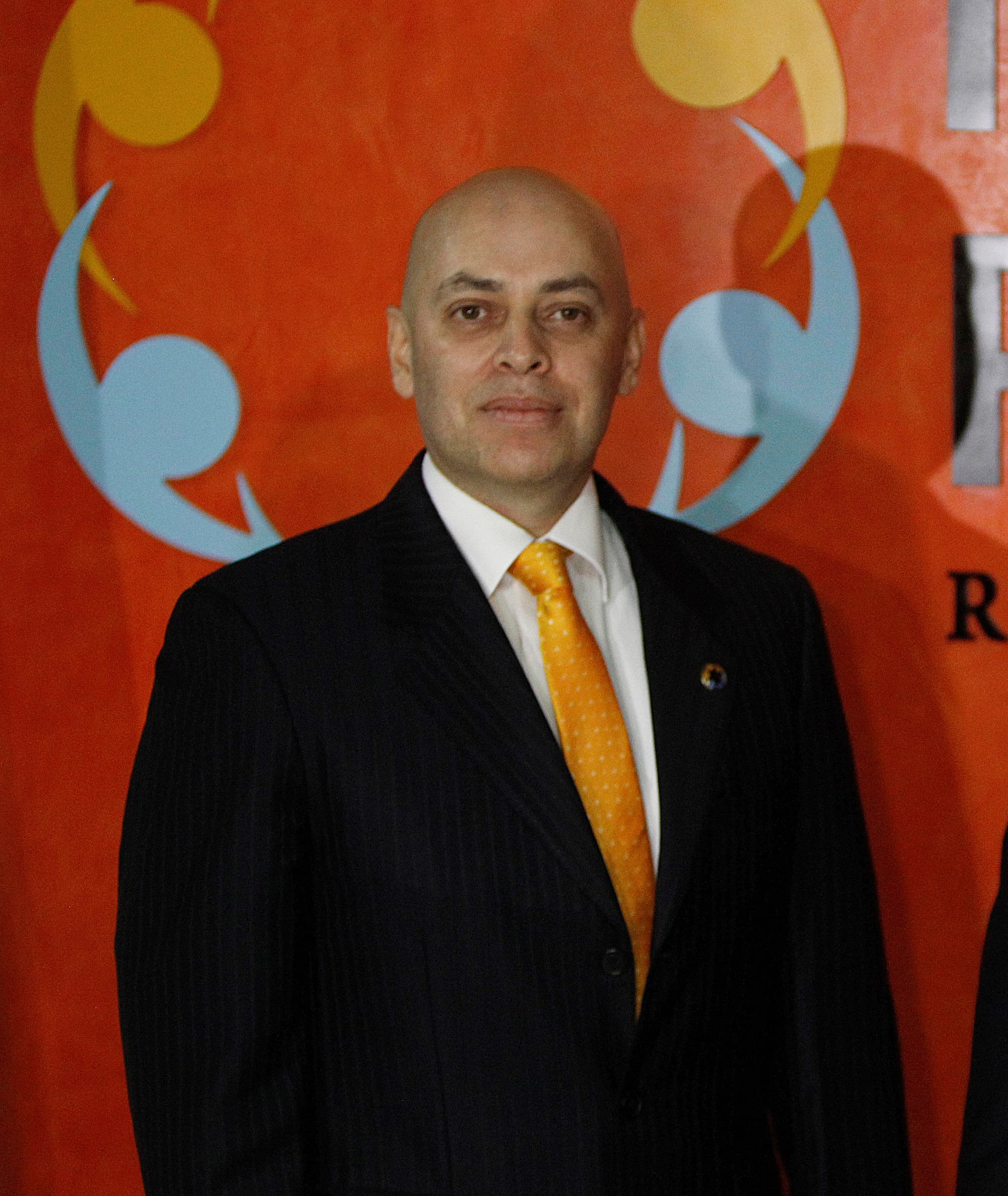
Born in Santa Rosa de Copán, in western Honduras, Óscar Chinchilla, 51, is a lawyer and notary. Growing up in a region accustomed to murders, drug trafficking, and smuggling, he became a skilled criminal lawyer. He is not an easy official to contact. When we tried, Public Ministry spokesman Yuri Mora said Chinchilla was not a media man and “may have given one interview in the last five years.”
We also attempted to reach attorney Soraya Cálix. Yuri Mora affirmed that she no longer serves as the director of the Office for the Fight against Drug Trafficking (Dirección de Lucha Contra el Narcotráfico – DLCN) and that she is currently employed “in one of” the divisions of the Prosecutor’s Office for Common Crimes. This is because she requested a leave of absence upon assuming the role of DLCN director. However, Cálix continues to appear as DLCN director in the organizational chart of the Public Prosecutor’s Office.
“Chinchilla was a provincial lawyer. He was taken to Tegucigalpa by the presidential appointee Victor Hugo Barnica, who introduced him to different politicians given his modesty, prudence, his low profile, for his gift of having come to know a world that did not exist in the province. He identified strongly with Juan Orlando Hernández. It is said that Hernández would leave him standing for long periods of time waiting to receive him. Hernandez showed him who was in charge,” said attorney Raul Pineda, former Nationalist congressman, a former JOH ally in the National Congress.
Óscar Chinchilla’s first public position was in 2002, when he became the alternate deputy for José Sady Contreras of the National Party. He remained there until 2003, when he became a member of the Court of Appeals of Santa Rosa de Copán. In 2009 he was chosen to serve for seven years as a magistrate of the Supreme Court of Justice (CSJ); seven years that he never completed during the administration of Jorge Rivera Avilés, between 2009-2016, because the National Party did what was necessary to make him Attorney General.
Óscar Chinchilla was severely criticized in 2012. He was only one of the five magistrates of the Constitutional Chamber not to be removed by Congress on December 12 of that year. Chinchilla voted against an appeal of unconstitutionality – file RI-769-11 – on the Special Development Regions (RED), also known as model cities, a project that stripped the country of its sovereignty over national territory. At that time, the Legislative was presided over by Juan Orlando Hernández. The reason Chinchilla was left standing was obvious: to vote against declaring unconstitutional a project that later became the Special Development Zones (ZEDEs), a central project of Hernandez, who was headed for the presidency of Honduras.
Upon gaining the confidence of the National Party, Chinchilla interrupted his magistracy in the CSJ to become Attorney General in 2013, in a process plagued with vices and irregularities.
“They called him a five-star prosecutor and presented him as an extraordinary official. He is a man who has now fallen into absolute anonymity, without the backing of anyone. He got there by the will of an authoritarian caudillo like Juan Orlando Hernández. The problem is that he has a very lethargic personality, he does not know what it means to be a prosecutor, a prosecutor must be a warrior and must take measures that sometimes involve personal risk. He is simply a man who collects a check every month,” added Raul Pineda.
Chinchilla is married to Catherine Chang Carías, appointed at the time by former President Hernández as director of the Central Bank of Honduras (BCH) and as director of the Central American Bank for Economic Integration (CABEI). Chang was in the latter position until March 2022 when Belinda Martínez, appointed by Xiomara Castro’s administration, assumed the role.
Attorney Omar Menjívar, vice mayor of San Pedro Sula and former prosecutor, assures that the two elections of Óscar Chinchilla as Attorney General were fraudulent. “Both the 2013 and 2018 elections were fraudulent. The National Party was clear that it needed to control the Public Ministry and so, in 2013 under their leadership, they intervened,” which at that time was led by the questioned Luis Alberto Rubí, who was forced to resign after a score of serious allegations against him.
But for Menjívar, all of this was a well-mounted plot, because despite the fact that Rubí was an inoperative former prosecutor, once he resigned he was never presented with a formal accusation. He was removed solely to advance an election process and ensure the appointment of a prosecutor who would obey the National Party’s interest.
“In August 2013 they appointed Chinchilla early, because Luis Rubí’s term was supposed to end in March 2014,” Menjívar explained. For him, Juan Orlando Hernández was clear that he needed to choose a prosecutor because with a new Congress, which was to be composed for the first time by deputies of the Free Party, and deputies of the PAC – who were Salvador Nasralla’s at the time – would not give him the guarantees to fulfill the task. For Chinchilla’s second term -who was elected in violation of article 232 of the Constitution of the Republic-, Menjívar indicated that Chinchilla was left against his own will, “because he said he did not want to and still they appointed him and he accepted this imposition. That is why the Public Prosecutor’s Office never did anything to prosecute drug trafficking, especially when it linked Juan Orlando Hernandez and Tony Hernandez.”
DLCN Detective requested authorization to denounce Tony Hernandez
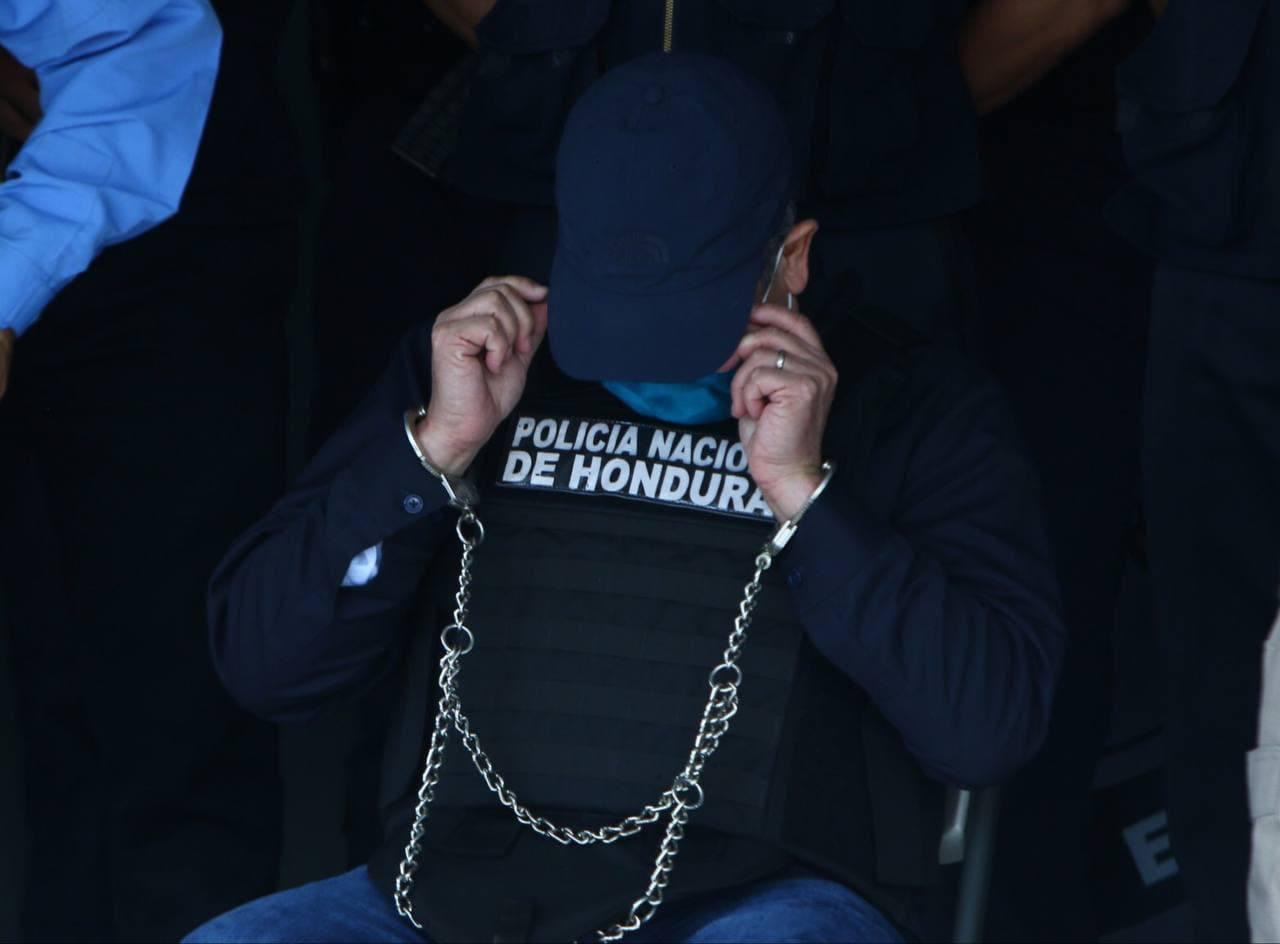
In 2016, a 22-year-old Josías, by then a detective with the Anti-Narcotics Directorate (DLCN), was assigned to the western regional office in Santa Rosa de Copán. “I remember that we inaugurated the DLCN regional on February 8, 2016 by order of the (American) Embassy and the Attorney General, because it was a hotspot in Copán. The Valle Valle had just been extradited and the Cachiros had fallen, and they wanted to hit the western zone hard.”
In December 2014, brothers Miguel and Luis Arnulfo Valle Valle were extradited to the United States on charges of moving cocaine by the tons from Honduras to the U.S., while the Cachiros, brothers Devis Leonel and Javier Rivera Maradiaga, surrendered to the U.S justice in January 2015.
“When we arrived there [in the west], the first thing we did was begin to gather information, together with DEA agents. Yours truly was fortunate that, although Ramon Sabillon was the one who captured the Valles, a case does not end with the capture, but with the sentence, with the dismantling of the remaining structures, and the one who was left with that case was me,” explained Josias, who said that at that time the Public Ministry began to mount operations like Raid I, Raid II, Operation Cerberus, Operation Volcano, all with the intention of dismantling the Valles organization. “What happened was that we began to strike hard, and as we began to strike, more information emerged,” he said.
Josias revealed to Contracorriente that as these arrests were being made, he repeatedly found that captured drug traffickers complained that another select group of drug traffickers were not being targeted. The same was said at the time by the former director of the National Police and former Secretary of Security, Ramón Sabillón.
“When you catch a drug trafficker, and he sees that you are not targeting another criminal organization, the first thing they ask you is, ‘Did they send you? or did this other one send you? And I was innocent, I joined the Public Ministry when I was 21 years old,” said Josías.
Josías expressed that in 2016, as a young man of 22 years old, he began to receive information about the then congressman Juan Antonio Hernández, better known as Tony Hernández, brother of the former President.
“He did not even have a complaint. I came and asked for a meeting with my immediate superior and told him that the president of the Republic was also linked to the criminal structure such and such and such.”
His superior took him to the attorney Soraya Cálix, who was already director, “to see if she would authorize the opening of the complaint. “Then my superior asks, who is going to take the complaint? Everyone was afraid. So I said: I am going to take it”.
Josías went on to say that when he was in front of Soraya Cálix he felt that something strange was going on, because she did not feel the same disposition to open a denunciation, as had been the case with the Valle Valle cartel. “It is there where we saw actions contrary to Chinchilla’s, because when we asked Soraya Cálix if we could open the complaint, the first thing she said was: what proof do you have against this person… No, it will not be opened, she told me”.
Josías revealed that this conversation took place in a meeting with more than 30 people present. “I challenged her and said: attorney, but the Valle case was opened by sources. And what evidence did we have against the Valles? None. Josías added that at that time the name of Mario José Cálix alias “Cubeta” — accused of drug trafficking by a New York court in 2019 — who is a cousin of the attorney Soraya Cálix, as revealed in 2019 by Diario Tiempo de Honduras, was not yet sounding. “But we keep hitting, we keep hitting, but only the Valle structure,” Josías exposed.
At the beginning of 2019, the Southern District Court of New York formally charged “Cubeta” Cálix with trafficking drugs to the United States. He is currently a fugitive from justice. In a publication by the U.S. Embassy, regarding the charges against former mayor Amílcar Ardón, it is reported that the charges were also against Mario José Cálix, who is described as an accomplice of Tony Hernández.
Josías said that there are wiretaps where Tony Hernández is mentioned by the Valle Valles. Tony Hernández was sentenced to life plus 30 years in prison by a U.S judge. The audios — in the possession of the Public Ministry, according to Josías Aguilar — also mention the former president of the Supreme Court, Rolando Argueta Pérez. “There we have audio of the Valles when they say: we are going to see this in Tony’s house. That’s why I say that justice is blind, because there are a lot of things that people don’t realize”, said Josías.
Óscar Chinchilla, extradition candidate?
The trial against Geovanny Fuentes Ramírez — which began in March 2021 — not only brought consequences for the former president of Honduras, but also exposed the institutional bodies servicing a narco-state that kept Juan Orlando Hernández safe, as stated in the accusations made by U.S prosecutors.
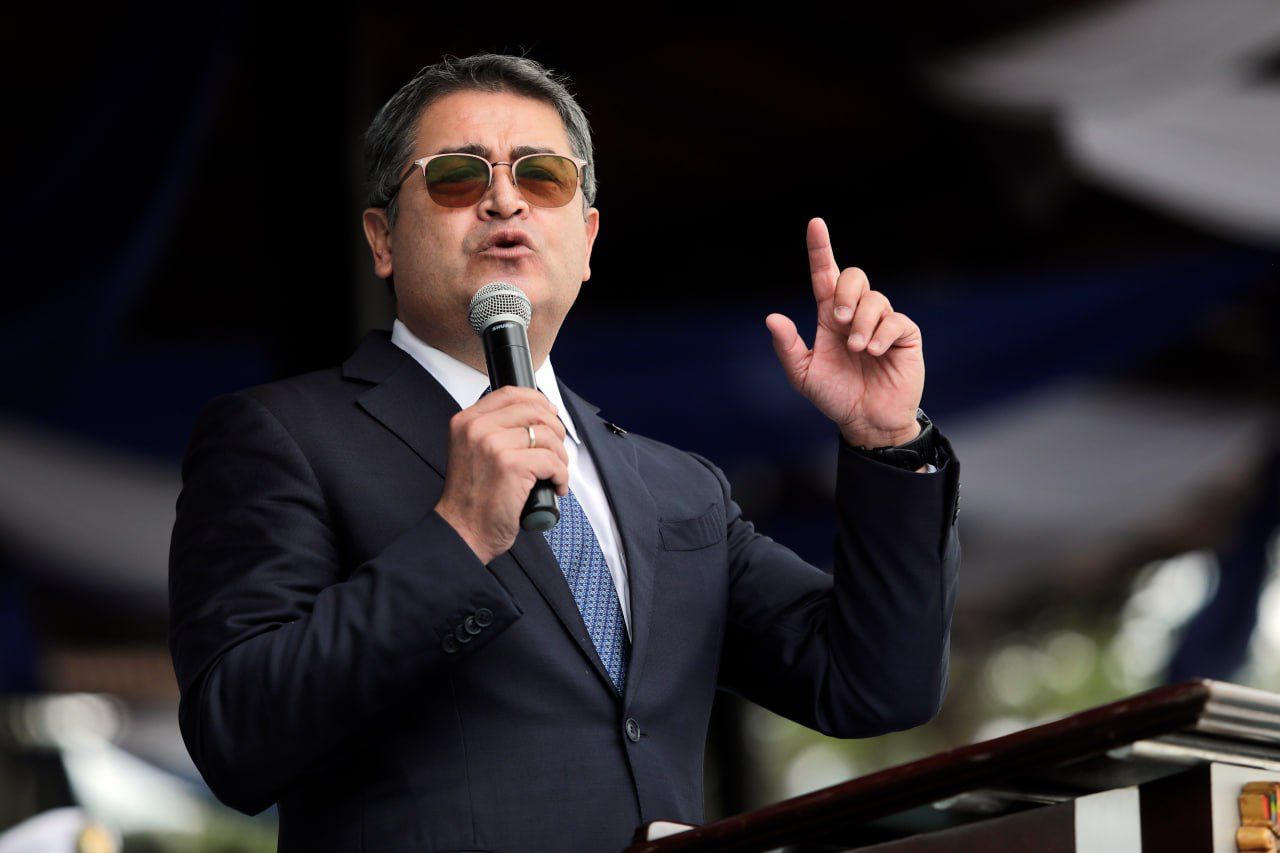
In the indictment against Fuentes Ramirez, Hernandez is accused of having advised him in 2013 not to worry about the law, because Attorney General [Óscar] Chinchilla had been appointed to protect them and the drugs. According to the accusation, the whole system was in collusion: the drug transports were protected by the military and the police, and if the United States found out, the system would modify the law in their favor.
The same reference was made in the indictment by New York prosecutors against Juan Orlando Hernández, where it was indicated that, during multiple meetings in 2013 and 2014, Juan Orlando accepted tens of thousands of dollars from Fuentes Ramírez, in exchange for protecting him from arrest and extradition, promising help through the Attorney General.
In the center of Honduras’ industrial capital, the vice mayor of San Pedro Sula, sitting in his office, says he knows Óscar Fernando Chinchilla’s career well. Menjívar was a prosecutor between December 2000 and August 2007, with assignments in the municipalities of Santa Rosa de Copán and his native Catacamas, where he led cases against organized crime.
For Omar Menjívar, the Public Prosecutor’s Office did not need someone to file a complaint about the occurrence of a crime to open investigations. “When you commit crimes of public order and of course drug trafficking is, the Public Prosecutor’s Office is obliged to act, and here the rumor was evident, if you want to put it mildly, that JOH and Tony were linked to drug trafficking and no investigation process was initiated”.
This is also supported by Articles 25 and 267 of the Code of Criminal Procedure.
“But there is a particular crime, which is the omission of the duty to prosecute crimes, which is clearly incumbent upon the attorney general. Article 515 [of the new Penal Code] contains that crime and he incurred in that conduct. Either they ask for his extradition in the U.S., which I think is a high possibility, or here the new Attorney General has to review Chinchilla’s conduct and will inevitably conclude that he committed a crime”, concluded Menjívar.
According to him, there’s a close possibility that the U.S. could ask for the extradition of Óscar Chinchilla “because in any case he was a facilitator of drug trafficking operations, as he did not pose a threat to these organizations because he did not pursue them or initiate investigation processes”.
To Óscar Chinchilla – Menjívar added – in the case of not being extradited, the provision at the national level also applies to him: “to begin with, violation of the duties of officials, the Public Prosecutor’s Office has, according to the law and the Constitution, the unavoidable exercise of the public criminal action”. This can be found in Article 349 numeral 3 on Omission to the Duties of Officials (Criminal Code, Decree 144-83) and also in Article 449 numeral 2 of Decree 130-2017, which contains the new Criminal Code.
Amílcar Ardón’s case exposes the Public Prosecutor’s Office
For Josías, the case of drug trafficker Amílcar Alexander Ardón Soriano, a key witness in the case against former President Hernández in the US, exemplifies the ineffectiveness of the Public Ministry during that time, and its instrumentalization in favor of a particular cartel.
Josías said that Amílcar Ardón did not have a single complaint in Honduras until 2017, and that he filed the first one on April 12 of that year. In addition, he assured that on one occasion, together with Colonel Ramiro Muñoz — the current head of the Military Police of Public Order — they detained Ardón.
“We thought that this man had an extradition order, we had him detained for about six hours, calling the DEA, the Embassy, finding out if he had an arrest warrant. We thought, because of everything he had said about the Valle, that he had an extradition order, but when we checked, he didn’t even have a traffic ticket,” he said.
Josias wondered how a narco potentate did not have a complaint, so he opened a complaint against him, began investigating and found that the Hernandez brothers were also involved. “And that’s why Alexánder is the star witness. The narco there was him, it wasn’t Tony or JOH, it was Alexánder.”
When he presented the report, Josías said, “before everything was aired in the U.S. and the extradition order was issued to Tony and JOH, his superiors did not react in the way that he anticipated.
“When she [Soraya Cálix] read the report, [the largest report of 154 pages, where activities, links, properties and everything was revealed, and that there are powerful people, apart from them, powerful businessmen of the country, linked to them] she told me that what I was presenting to her was a novel. That it was a Netflix series and that this is not appropriate,” he recalled.
Josías told Contracorriente that he sent the report directly to the U.S Department of Justice. “Then I received death threats, there are these operations where they pay money to kill me and my colleague. They brought me to Tegucigalpa, and I found out that they forged my signature on a report of a certain person in a very delicate case”.
It was there when Josías explained that he decided to denounce the attorney Soraya Cálix and it was the genesis for him of “an incredible persecution”. “You ask me at this point, I have all my family out of the country, only I have stayed. I did not accept refuge or asylum because I consider that we good men have to stay in the country to generate a change, to bring justice. We cannot live in fear all our lives, running away from this reality, at least I want a better life”, he said.
Josías lamented that by then the Honduran Public Ministry had been incapable of arresting, investigating or at least opening a complaint against those in power who were using their position to traffic drugs. “That is why I said that attorney Luis Javier Santos was a good candidate for Attorney General, but unfortunately there are requirements that have to be met. It is necessary to have an Attorney General who wants to fight head on”.
Josías assured that the only person at that time who had direct access to the Attorney General was the attorney Soraya Cálix, and that Chinchilla was used, they sweetened him by telling him that he was a golden prosecutor: “I am at least of the opinion that Soraya Cálix and him, from my point of view, are going to get an extradition order, I give it a 70% or 80% that they can take him away”.
Apathy to hold Óscar Chinchilla accountable
For Ursula Indacochea, director of judicial independence for the Due Process of Law Foundation (DPLF), it is important that when his term ends, Chinchilla is held accountable, but not only from the outside. He, she says, has to be held accountable. “So that the new prosecutor has a map. No one is talking about balancing that double responsibility and it seems to me that it is the pink elephant that no one is mentioning”.
Indacochea said that questions such as these must be asked: did he really set out to reduce crime, did he succeed or not, did he wait the full length of his mandate to make his decision, or did he already have this information and could have applied corrective measures but chose not to do so? Where did he direct the resources?
Throughout the Attorney General’s tenure, these answers were never required of him by the National Congress. Óscar Chinchilla did not present annual reports, violating article 24 of the Law of the Public Prosecutor’s Office, which orders him to present reports for approval of the deputies. In spite of all the public accusations against him, he was never questioned to render reports, as required per article 205 numeral 22 of the Constitution of the Republic.
The Peruvian attorney said that reading the reports on the execution of expenses of the prosecutor’s offices, one can easily identify what the priorities were of prosecutor Óscar Fernando Chinchilla. “How many emblematic cases were solved, how many corrupt people did he manage to incarcerate, how many drug traffickers did he manage to incarcerate? We need to see the whole picture to see if he was a good prosecutor or not.”
This research was carried out thanks to the support of the Consortium to Support Regional Journalism in Latin America (CAPIR) led by the Institute for War and Peace Reporting (IWPR).

